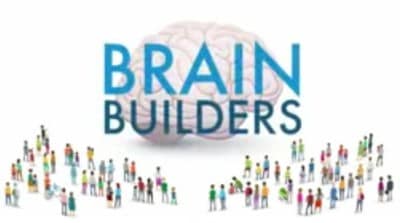
The current issue of National Affairs, a conservative intellectual journal, contains an insightful “progress report’’ on the nation’s experience with charter schools since the initial 1991 law in Minnesota. For North Carolina, where charter schools remain on the legislative agenda, the National Affairs essay works on two levels: as a specific program evaluation and as a wider-angle caution amid a rush to privatization.
The co-authors, Chester E. Finn Jr. and Bruno V. Manno, have served in the upper-ranks of the U.S. Department of Education in Republican administrations — Finn under Ronald Reagan and George H.W. Bush and Manno under George W. Bush. Finn remains an influential figure in education policy, especially through the Thomas B. Fordham Institute, of which he is president emeritus. Manno is education adviser to the Walton Family Foundation.
As policymakers and education analysts, Finn and Bruno propelled the development of charter schools. They report that 43 states and the District of Columbia allow charter schools. With nearly 3 million students in approximately 6,700 charter schools, the co-authors write,
“they are as close to a ‘disruptive innovation’ as American K-12 education has seen to date, creating a new market and alternative delivery system that affords long-neglected families access to potentially higher-quality schools than they find within the traditional district structure.”
Finn and Bruno credit charter schools for serving poor and minority students “who otherwise would be stuck in the worst urban schools.” And they point out that demand for charter school seats exceeds supply.
Still, they draw on academic research in their examination of academic performance.
They characterize charter schools as “a galaxy of educational institutions that range from dismal to superb.”
Early charter advocates, they write, paid more attention to quantity rather than quality. It’s difficult to close a bad charter, they write, and questions abound over how to handle students with care when closing a charter.
Finn and Bruno evaluate the complex workings of authorizing agencies, of school governance, of profit-seeking management organizations. They note that charter schools should serve as generators of best practices for all schools, but “the charter sector doesn’t appear to be doing much R&D today.”
“It’s a little embarrassing to acknowledge, with the benefit of hindsight, that putting a charter sign on a school building actually reveals surprisingly little other than that it’s a ‘school of choice’ with some freedom to be different,” says Finn and Bruno, who go on to encourage “recalibration and further experimentation.”
You don’t hear the sober research-based introspection of Finn and Bruno in the North Carolina General Assembly’s discussion of charters. Some legislators today, for example, push to transfer charter-authorizing authority from the Department of Public Instruction to the State Board of Education mostly as a means of chartering more schools as distinct from addressing the issues they spotlight.
Considering their philosophical leanings and their considerable policy experience, Finn and Bruno deliver incisive passages that should be must-reading on Jones Street. In one passage, they invoke the name of Milton Friedman, the iconic free-market economist who died in 2006 at age 94 after exerting enormous influence on Reagan policies in the U.S. and Margaret Thatcher’s in the U.K.
Finn and Bruno observe the “vexing reality (doubly vexing to school-choice advocates such as ourselves) that market forces alone can’t reliably generate academic effectiveness. Milton Friedman may have gotten this part wrong, at least over the short run.”
They worry over the effects on charter schools managed by for-profit companies “when investor interests trump those of quality teaching and learning.” And among the “lessons learned,” they write, “We assumed that a barely regulated marketplace would provide more quality control than it has done.”
Today’s legislative atmosphere has given rise to an assumption that the free-market forces produce better results than government agencies, including public schools. In fact, experience suggests that our democratic-capitalist society works through a pragmatic interplay of for-profit, nonprofit, and public institutions.
At issue today in education policy is whether North Carolina legislators should legislate from their predispositions and discard experience, or whether they can learn from the long American practice of improving the prospects of young people by drawing lessons from the deep well of hard-earned knowledge of schooling for a broad, diverse society.
Here is a link to the Finn-Bruno essay.
Recommended reading



